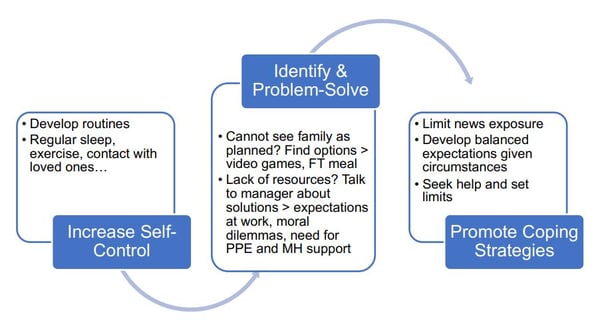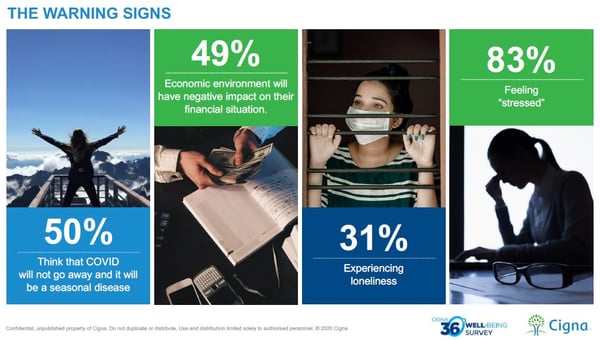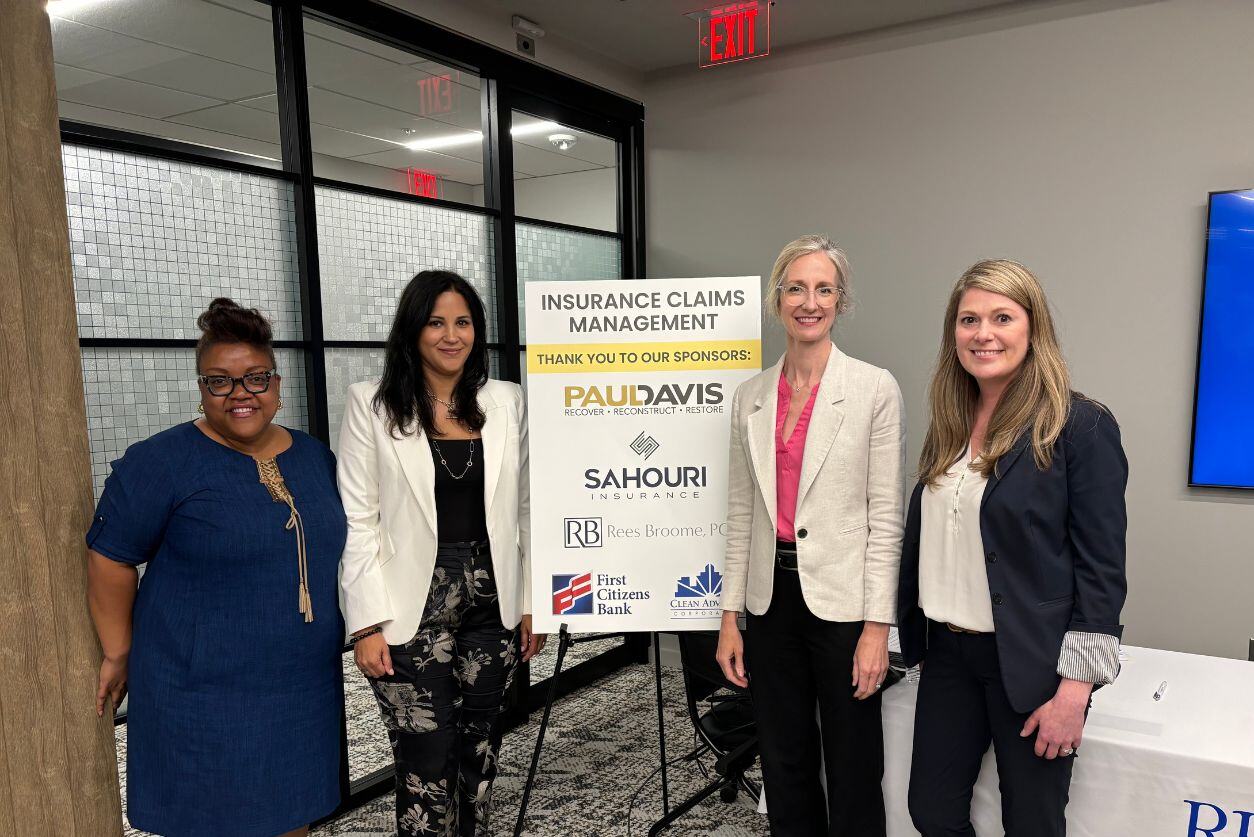Washington, D.C. - The Meridian International Center and Sahouri Insurance recently partnered to host a panel discussion on the mental wellness impacts of COVID-19 on the global community at large.
Discussion Overview:
- Cigna's Global Impact Study
- Long-Term Impacts & the Future
- Global Insights from the APA
- How Small Business Leaders Can Help
- Resources: video, presentation slides, info-sheets
- The Meridian - Sahouri Partnership
The virtual program convened diplomats, as well as public and private sector leaders, to examine global mental health studies and how, as influencers, they can advocate for mental wellness within their organizations.
Special guests included Dr. Peter Mills, Medical Director at Cigna Global and Dr. Amanda Clinton, Senior Director of the American Psychological Association.
.png?width=600&name=Mr.%20Frank%20Justice%20Vice%20President%20Meridian%20International%20Center%20(4).png) Sahouri Insurance, through its direct involvement with the administration of health and wellness programs for its clientele, recognizing the need for a mental health discussion - especially with the firm's long-standing partners, Cigna Global, which has just concluded its global impact study.
Sahouri Insurance, through its direct involvement with the administration of health and wellness programs for its clientele, recognizing the need for a mental health discussion - especially with the firm's long-standing partners, Cigna Global, which has just concluded its global impact study.
Cigna's Global Impact Study.
In partnership with Kantar, a leading data, insights and consulting firm, Cigna conducted the COVID-19 Global Impact Study - analyzing the pandemic's impact on the mental wellbeing of 10,000 people around the world - who were surveyed quarterly to identify attitude shifts as the outbreak progressed.
We established the Global Impact Study as ongoing research that will track perceptions of COVID-19-related well-being over time and geographies.
Dr. Peter Mills, Medical Director of CIGNA Global represented the company on the panel to discuss the study's findings, began by summarizing the general sentiment of the global population as time has progressed:
- May = “We’ll get through this.”
- July = “We’ve had enough of this.”
- September = “We’re in this for the long haul.”
Long-term Impacts and the Future.
Based on the data, Dr. Mills believes the world will see prolonged impacts on mental health. This pandemic has put a tremendous strain on people and the majority of areas that impact their mental health.
Main contributors to our mental health:- Work health
- Family relationships
- Genetics and environmental influences
- Financial stability
- Social and societal bonds
Of those surveyed, 83% reported "feeling stressed," an expected (yet overwhelming) warning sign, since compounding stress will likely have a snowball effect on others areas of their lives.
To prepare for the future, Mills suggests countries:
- Train more mental health professionals - doctors, therapists, nurses, and support workers
- Invest in digital care and research to determine what works and for whom
- Immerse mental health education and self-management into all areas of the educational curriculum
Global Insights from the APA.
Dr. Amanda Clinton, Senior Director of the Office of Global Affairs at the American Psychological Association (APA) mirrored Dr. Mills' sentiment and the need to invest in more mental health resources.
The Association met with professionals in psychology from nearly 50 countries to collaborate on mental health initiatives and facilitate open dialogue as the world watches the mental health impacts of COVID-19 unfold.
Countries set up mental health hotlines, hosted mental health workshops, and created mental wellness programs and guidelines. In addition, many countries implemented initiatives to alleviate monetary stress during the pandemic.
Indonesia for example, created an employee training program for small businesses that were impacted and New Zealand reduced rent prices.
How Small Business Leaders Can Help.
The pandemic has created additional difficulties for small business leaders as the workforce struggles to balance telework and day-to-day activities. Dr. Clinton believes leaders should strive to be role models for healthy living.
Leadership through optimistic realism and confidence through uncertainty.
To effectively lead a company through a crisis, Dr. Clinton advises leaders to be optimistically realistic and confident through uncertainty. With employees undertaking new hardships, such as tending to their kids while teleworking or struggling to pay off debt on reduced incomes, leaders should be "understanding, empathetic, and cognizant of the unique circumstances staff is facing."
Dr. Clinton's chart below identifies strategies to help employees cope better with stress at work and at home. 
In addition to leadership guidance, Dr. Clinton emphasized the importance of normalizing mental health care, so staff members can feel comfortable asking for help. Part of that comfortability would come from the confidentiality of their treatment. It is essential that overall confidentiality standards are upheld.
As the world grapples with the ongoing pandemic, Dr. Clinton also emphasized the need for empathy throughout the highest levels of our organizations. Since mental wellness impacts almost every aspect of our lives, people must feel confident they can get help when they need it the most.
Resources.
- Resources from Cigna & Sahouri
- Cigna COVID-19 Global Impact Study
- Mental Health Free Online Course
- Dr. Clinton’s Presentation
- Dr. Mills’s Presentation
Meridian & SAHOURI.
Meridian and Sahouri share intimate and long-standing relationships with the diplomatic community in the United States. Meridian through its social engagement and thought leadership programs, and Sahouri through risk management and insurance advocacy.
The Meridian International Center is a non-partisan, non-profit organization committed to empowering leaders, strengthening the United States’ global engagement and driving international collaboration with the diplomatic community and the private sector to develop programs that assist leaders to better respond to global challenges.




